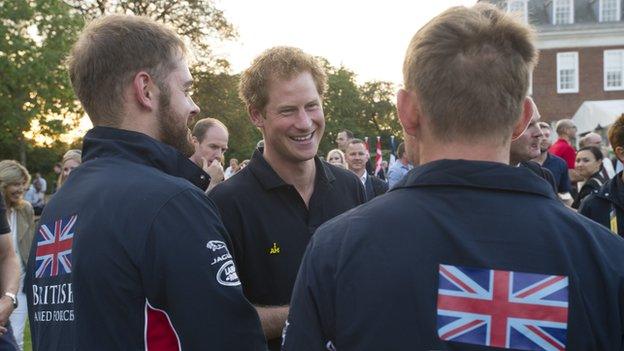Invictus Games: Elizabeth Marks gives gold medal to Papworth Hospital
- Published
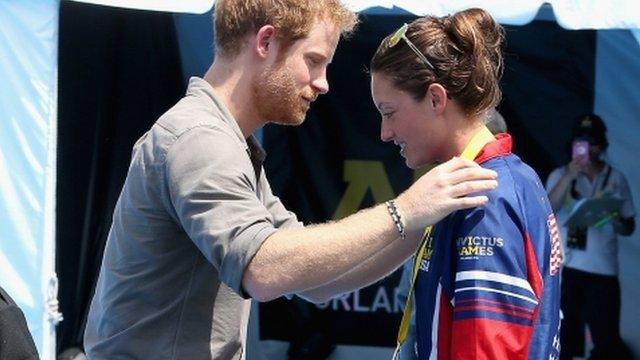
Prince Harry presents USA Invictus Team Member Elizabeth Marks with a Gold Medal
An American soldier has given her Invictus Games gold medal to the hospital team that saved her life.
Sgt Elizabeth Marks told Prince Harry, who presented her with the prize, to hand it to the medical team at Papworth Hospital in Cambridgeshire.
The swimmer, 25, from Arizona, became gravely ill when she collapsed with a lung condition on the eve of the first games in London in 2014.
"They absolutely saved my life and I can't thank the UK enough," she said.
Sgt Marks won all four swimming events she entered at the Invictus Games in Orlando for injured military personnel and veterans.
She chose to give her 100m freestyle gold to the hospital as it had been touched by the prince, who came up with the idea for the games.
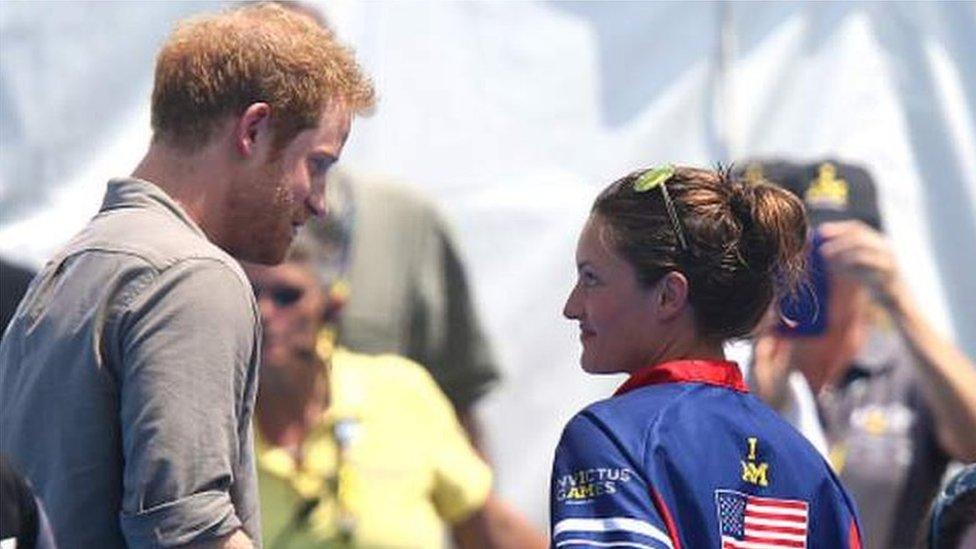
Sgt Marks won all four swimming events she entered at the Invictus Games in Orlando, Florida
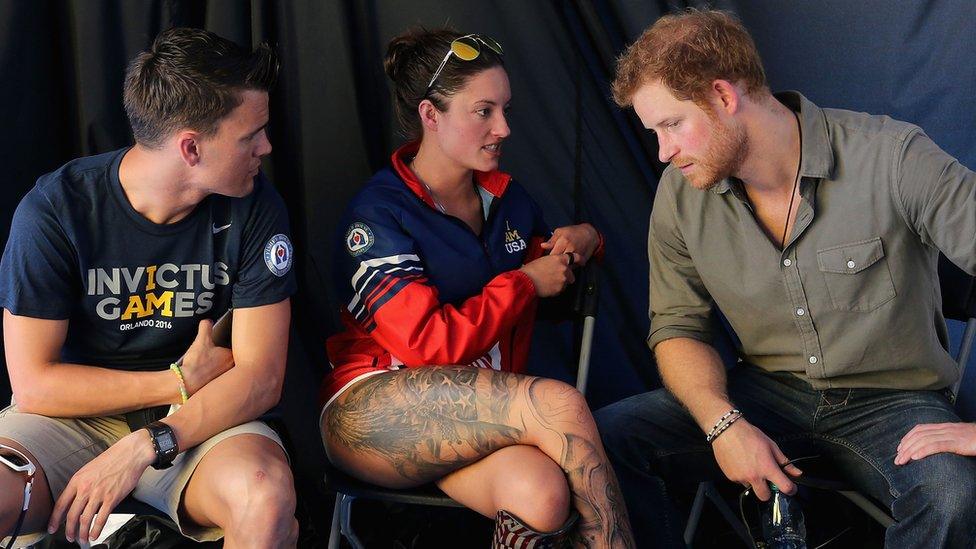
Sgt Marks was in an induced coma for 10 days
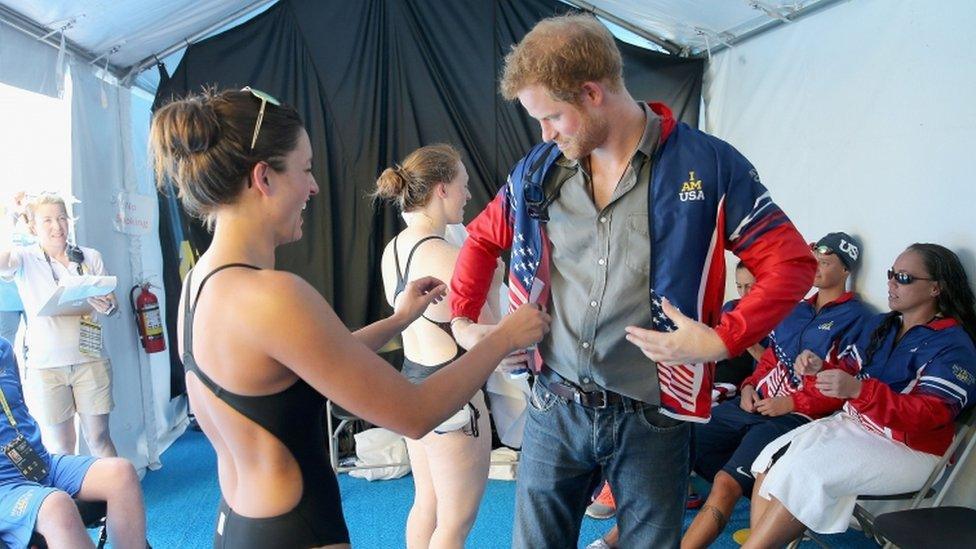
Prince Harry found he was unable to fit into Sgt Marks' team jacket in the swimmers' tent
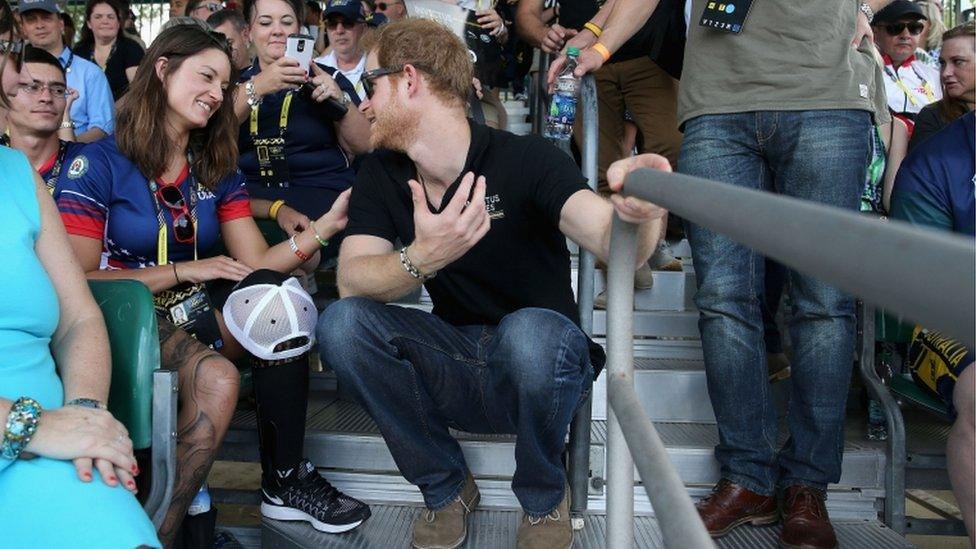
Prince Harry and Sgt Marks watched the track and field events at the games
Sgt Marks has served in the US army since she was 17, but in 2010 suffered a serious hip injury that left her with no feeling in her left leg.
Two years ago, she became very ill after arriving in the UK for the games.
She woke up from an induced coma 10 days later in an army hospital in Germany.
"I was in hospital in London and went into respiratory distress syndrome, they shipped a team down from Papworth who put me on to ECMO (extracorporeal membrane oxygenation) life support and that ultimately saved my life," she said.
"But they absolutely saved my life and I can't thank the UK enough for having that kind of medical support and taking such good care of me.
"So I gave Prince Harry one of my medals and hope it will find its way back to Papworth."
She also paid tribute to the NHS and said: "Thank you, I'll never be able to repay you, but what you're doing is wonderful."
Papworth's temporary chief executive said she was "delighted" by both Sgt Marks' "extraordinary" achievement and gesture.
Claire Tripp said: "We wish Elizabeth the very best and would very much like to meet her so we can thank her personally."
The hospital's medical director Dr Roger Hall said the team was "extremely proud" of Sgt Marks and described her donation as "generous and unexpected".
"Elizabeth's fantastic achievement is a good example of how modern medicine can support all of us to not only lead a normal life, following life-threatening conditions, but go on to achieve truly amazing accomplishments," he said.
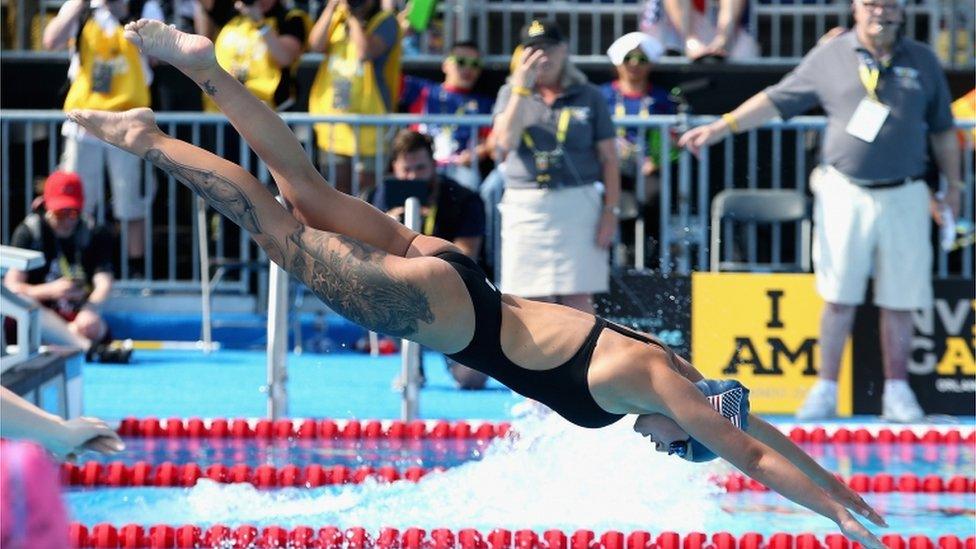
USA Invictus Team's Sgt Marks competes in the swimming pool
- Published8 May 2016
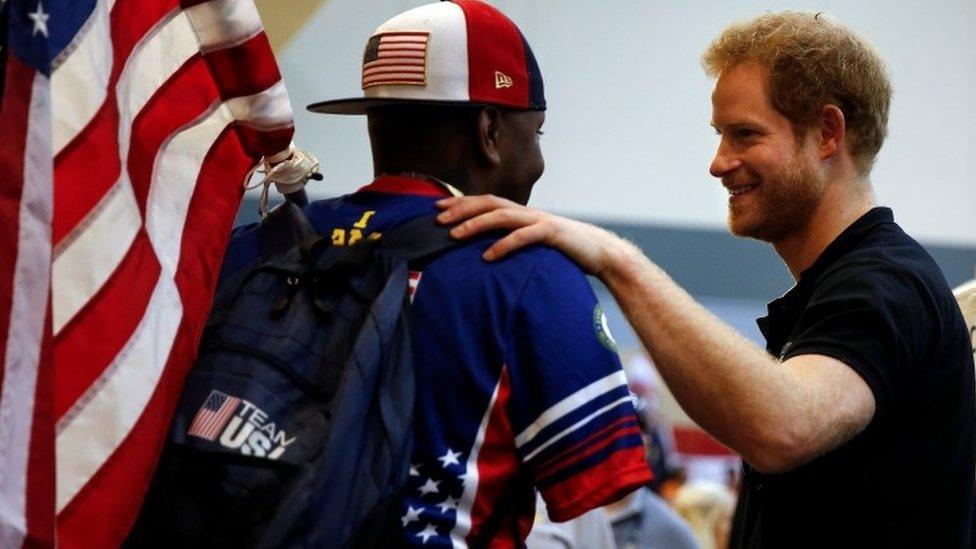
- Published5 May 2016
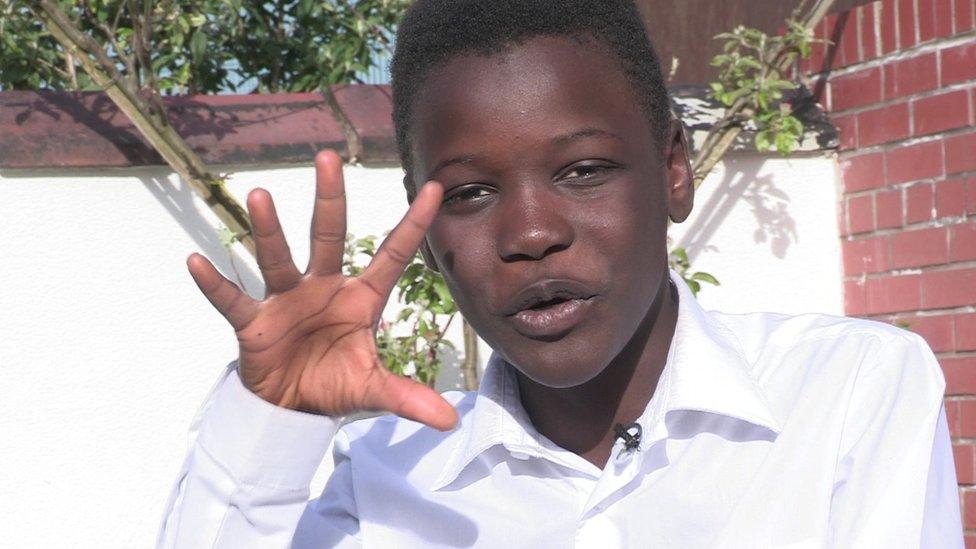
- Published15 September 2014
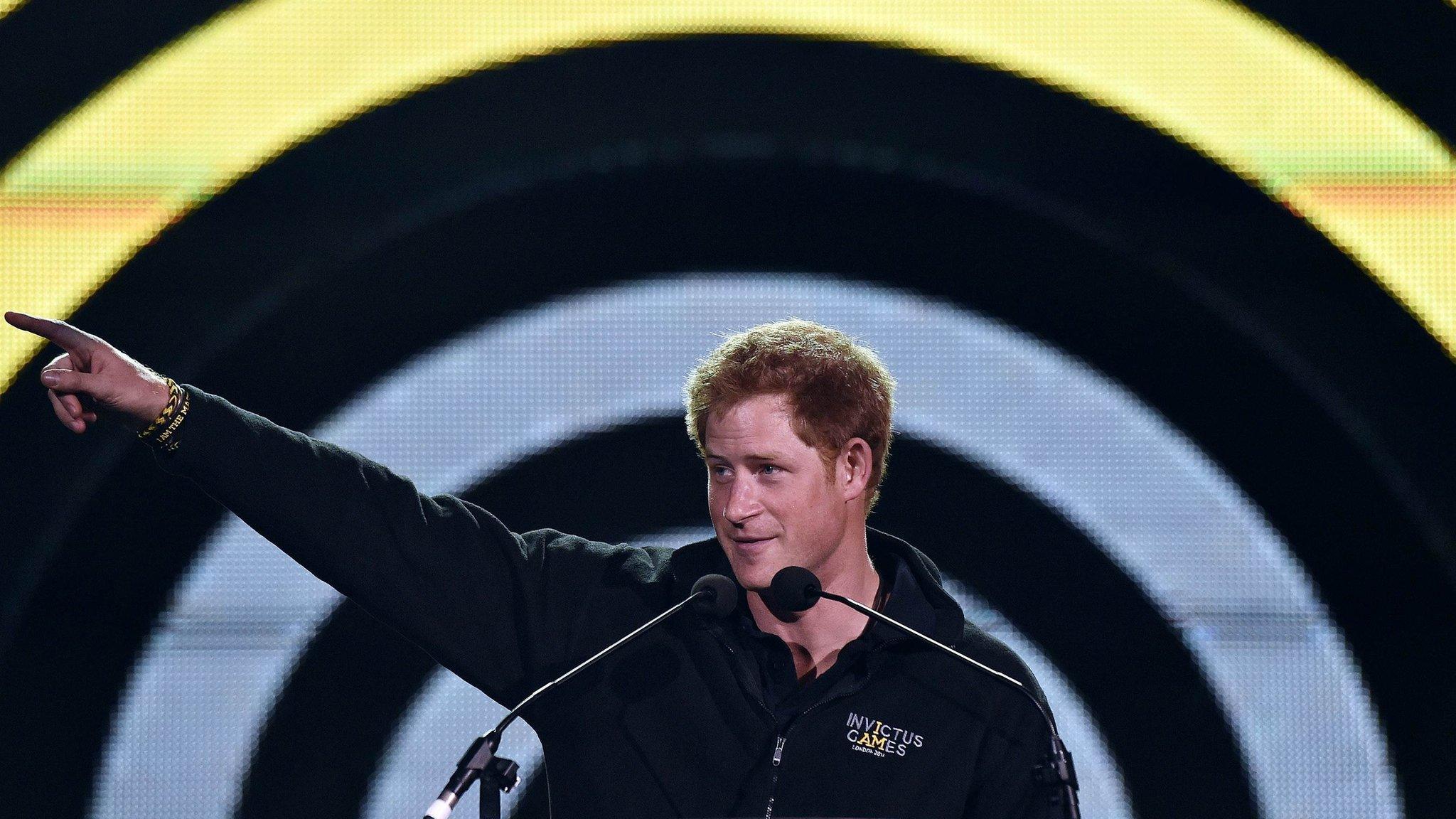
- Published10 September 2014
